We’re all trying to make healthier food choices, but some products market themselves as “clean” or “natural,” only to be packed with hidden sugars, unhealthy fats, and chemicals. These foods may sound like wholesome choices, but in reality, they are heavily processed and far from the nutritional powerhouses they claim to be. Let’s take a look at 12 seemingly healthy foods that are ultra-processed and why you might want to rethink reaching for them next time you’re shopping.
1. Fruit Juices
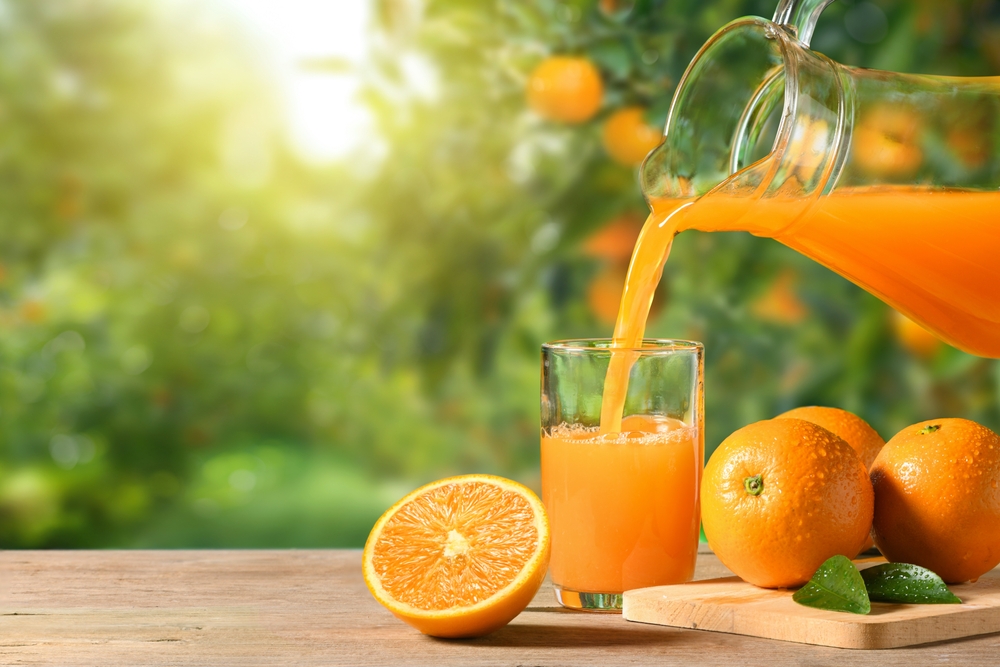
Fruit juices often get a pass because they’re associated with health, but the reality is far from the truth. While they may start with real fruit, most store-bought juices are packed with added sugars, preservatives, and artificial flavors. The processing strips away most of the fiber, leaving just a sugary liquid that can spike blood sugar levels and contribute to weight gain and diabetes. These processed juices are far from the healthy, nutrient-rich options they are marketed as.
Even “100% pure” juices often contain concentrated forms of fruit, which still lack the fiber and antioxidants of whole fruit. If you crave the taste of juice, opt for freshly squeezed versions or, better yet, enjoy whole fruits that are rich in fiber and nutrients. Your body will benefit far more from eating the whole fruit, and you’ll avoid the sugar overload that comes with packaged juices. According to The Science on 100% Fruit Juices, moderate consumption of fruit juice can provide nutrients without posing significant health risks when consumed responsibly.
2. Granola Bars
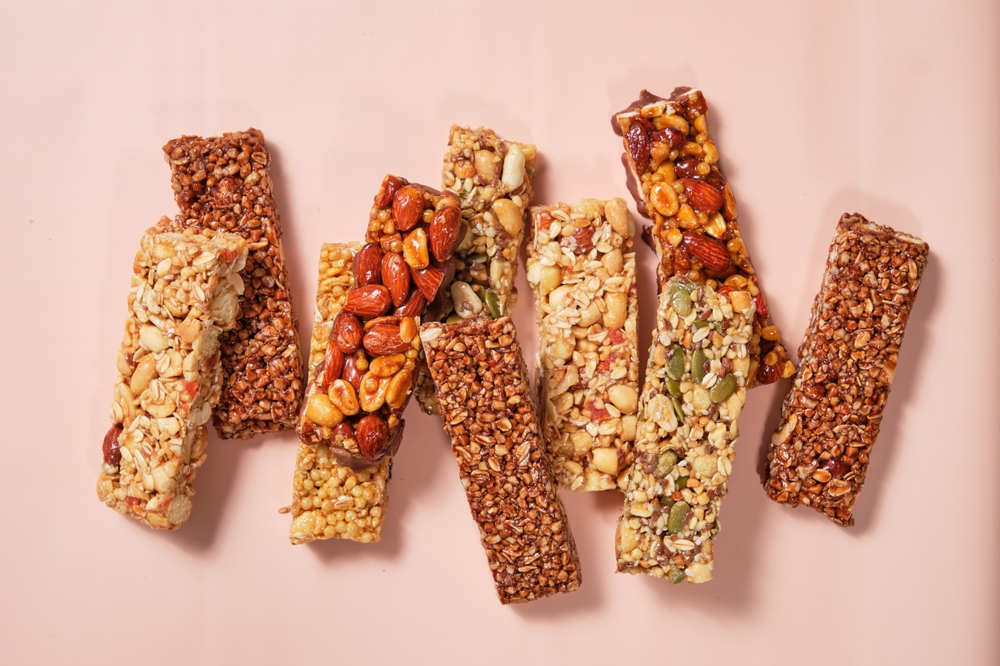
Granola bars are marketed as a healthy snack, often featuring oats, honey, and dried fruits. However, most commercial granola bars are loaded with refined sugars, unhealthy oils, and artificial sweeteners. Despite the appearance of being a wholesome, energy-boosting snack, many granola bars are more akin to candy bars, packed with empty calories and minimal nutrition. These bars are often heavily processed, stripping away the nutritional benefits you expect from oats and nuts.
If you’re craving a granola bar, consider making your own at home with whole ingredients like oats, nuts, and natural sweeteners like honey or maple syrup. Store-bought versions, even the “organic” ones, can often be a better marketing tactic than an actual healthy snack. Homemade granola bars are a great way to enjoy the snack without all the added sugars and unhealthy oils. Research published in the International Journal of Food Fermentation Technology highlights how homemade granola bars can provide better nutritional balance compared to commercial options.
3. “Low-Fat” Yogurt
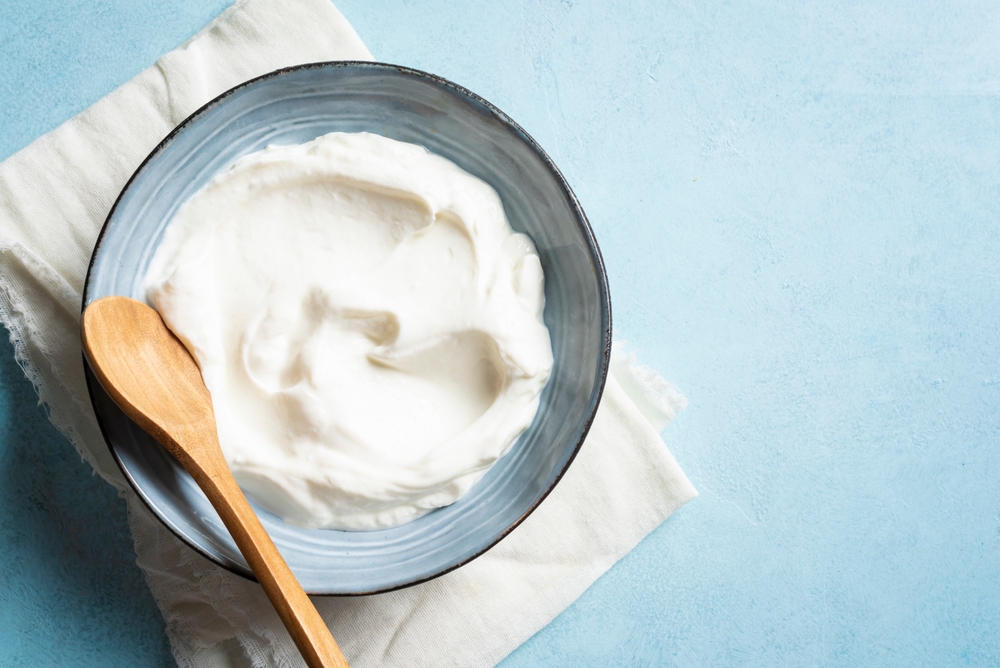
Low-fat yogurt might sound like a healthier option, but it’s often loaded with added sugars to make up for the lost flavor. While the absence of fat sounds good in theory, the added sugar cancels out any potential health benefits. Many low-fat yogurts are also packed with artificial sweeteners, flavorings, and preservatives, making them far from clean. The fat content is replaced with highly processed ingredients that can be more harmful than beneficial.
Instead, opt for full-fat Greek yogurt, which is higher in protein and free from unnecessary additives. If you need sweetness, add some fresh fruit or a drizzle of honey for a healthier alternative that offers more nutrition without the sugar crash. Full-fat yogurt provides essential nutrients like healthy fats and probiotics that low-fat versions lack. Insights from WebMD highlight the nutritional benefits of choosing full-fat over low-fat yogurt.
4. Veggie Chips
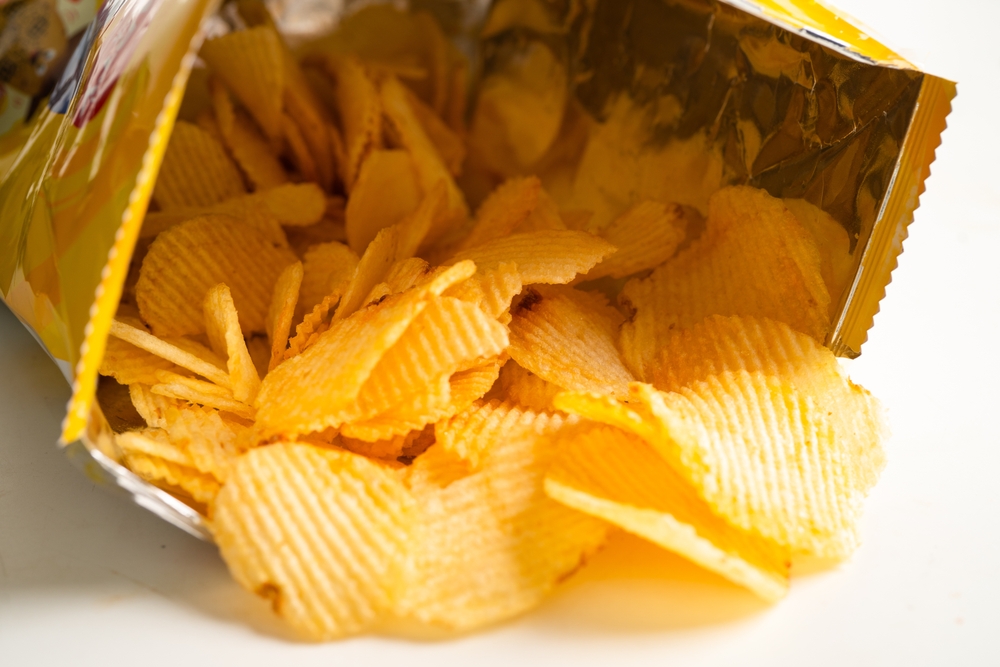
Veggie chips might seem like a healthier alternative to regular potato chips, but many brands are filled with refined oils, artificial flavoring, and preservatives. While they may feature vegetables like kale or sweet potatoes, these chips are still processed to the point where they’ve lost most of their original nutrients. The frying process, combined with unhealthy oils, makes them just as bad—if not worse—than regular chips. They also tend to be high in sodium, which contributes to hypertension and heart disease.
If you crave a crunchy snack, consider making your vegetable chips at home by baking thinly sliced vegetables like zucchini, sweet potatoes, or carrots. This way, you get the crunch without the added chemicals and unhealthy fats. Homemade vegetable chips allow you to control the ingredients and skip the excess salt, preservatives, and oils found in most packaged options. According to PureWow, homemade veggie chips are a nutritious and customizable alternative to store-bought versions.
5. Protein Shakes
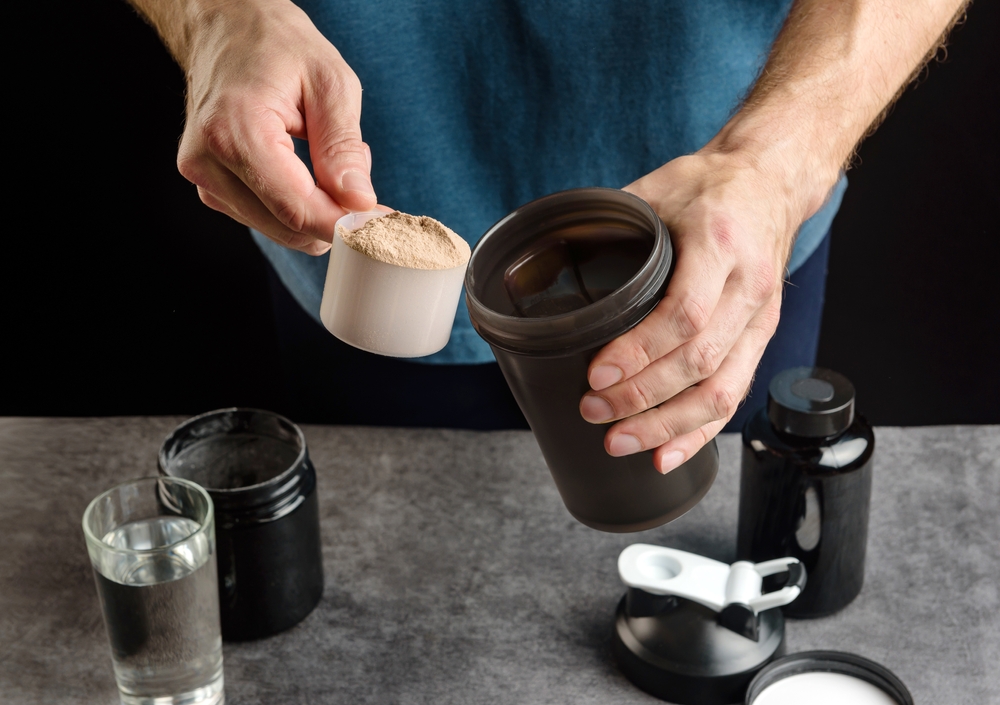
Protein shakes are popular for building muscle or losing weight, but many store-bought options are loaded with artificial sweeteners, thickeners, and additives that may disrupt digestion or cause inflammation. Additionally, they often contain high levels of sugar that could lead to weight gain.
According to PubMed, whole food sources like lean meats, legumes, eggs, or nuts offer better digestion and absorption compared to processed protein supplements. These foods not only provide protein but also essential vitamins and minerals for overall health benefits.
6. Multigrain Bread
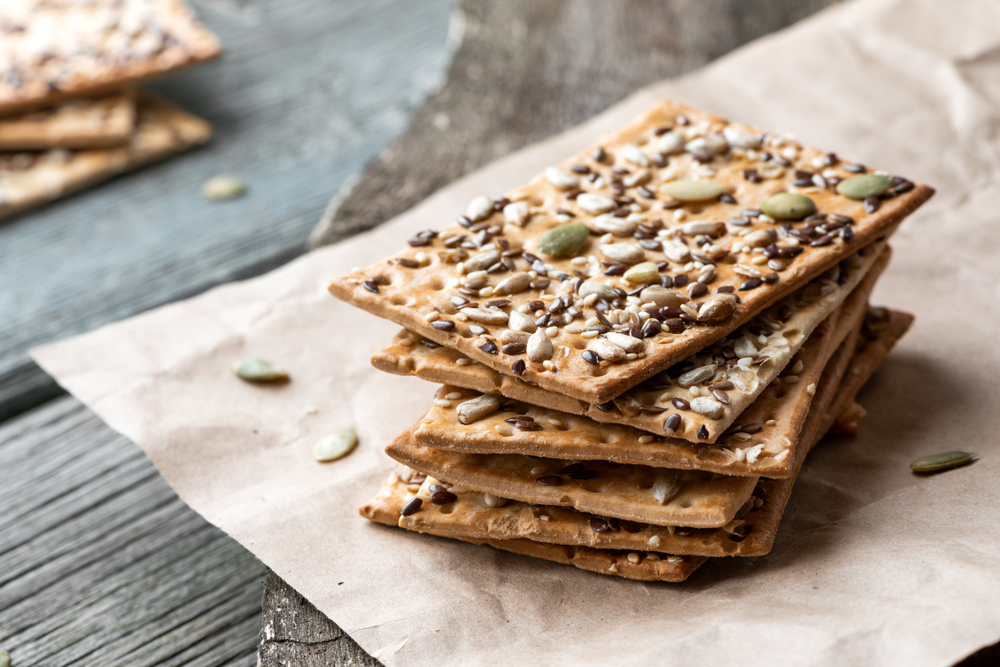
Multigrain bread often sounds like a healthy option, but many varieties are made with refined flours and sugars, masking their ultra-processed nature. While the label may suggest it’s packed with whole grains, the reality is that it often contains little more than white flour with a few added seeds for decoration. The refining process removes much of the fiber and nutrients, making it just another processed bread. These breads may have added vitamins and minerals, but they lack the genuine benefits of whole grains.
Look for bread that is made with 100% whole grains or sprouted grains. These types of bread retain the nutrients and fiber that are often stripped away in more heavily processed versions, offering a far healthier choice for your body. Whole-grain breads contain more fiber, which supports digestion and helps manage blood sugar levels.
7. Salad Dressings
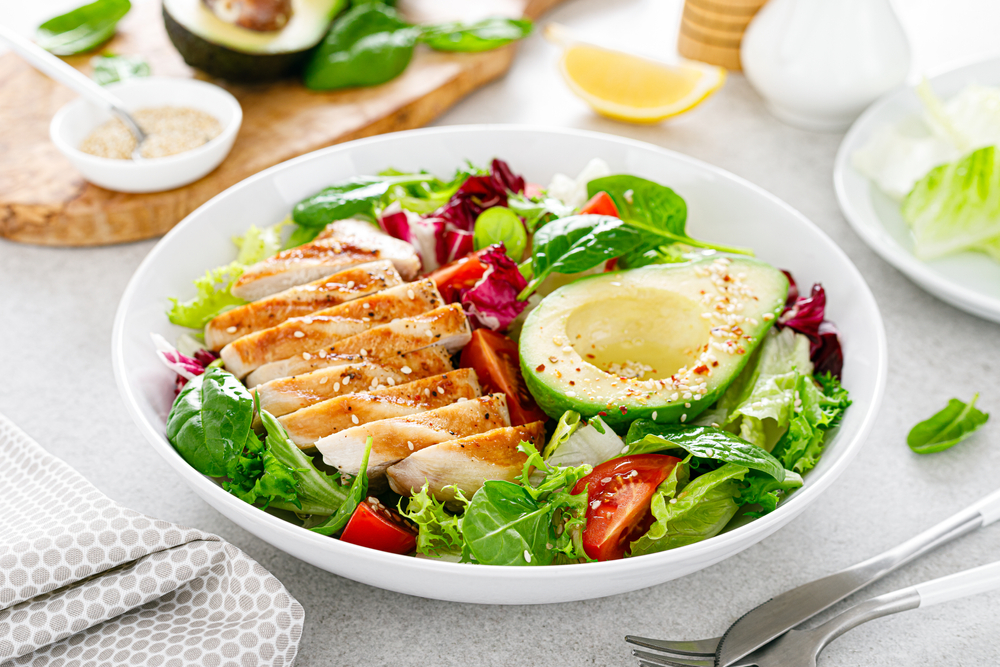
Salad dressings are often packed with hidden sugars, unhealthy fats, preservatives, and artificial flavorings. Even the ones that sound healthy—like vinaigrettes—can contain refined oils, sweeteners, and excessive sodium. While adding a dressing might seem like a small touch, it’s important to know that many store-bought options are loaded with empty calories and chemicals. These dressings can turn a healthy salad into an unhealthy calorie bomb, undermining your nutrition goals.
To avoid processed dressings, make your own with simple ingredients like olive oil, vinegar, lemon juice, mustard, and herbs. It’s easy to create a fresh, flavorful dressing without the unnecessary additives found in most bottled versions. Homemade dressings also provide healthy fats, like olive oil, which are beneficial for your heart and overall health.
8. Sports Drinks

Sports drinks are marketed as a way to hydrate and replenish electrolytes after exercise, but they are often full of added sugars, artificial colors, and flavorings. Despite their promise of hydration, these drinks can contribute to weight gain, insulin resistance, and tooth decay due to their high sugar content. They also often contain little in the way of actual electrolytes or beneficial nutrients. Many sports drinks are simply sugary beverages that provide little nutritional value and can have negative long-term effects on your health.
For hydration, water is your best option, especially if you’re engaging in light to moderate physical activity. If you’re working out intensely for over an hour, try coconut water or make your electrolyte drink with a pinch of salt and natural fruit juice to replenish electrolytes without the added sugars. These alternatives are not only healthier but also provide a more natural way to hydrate and recover.
9. Breakfast Cereals
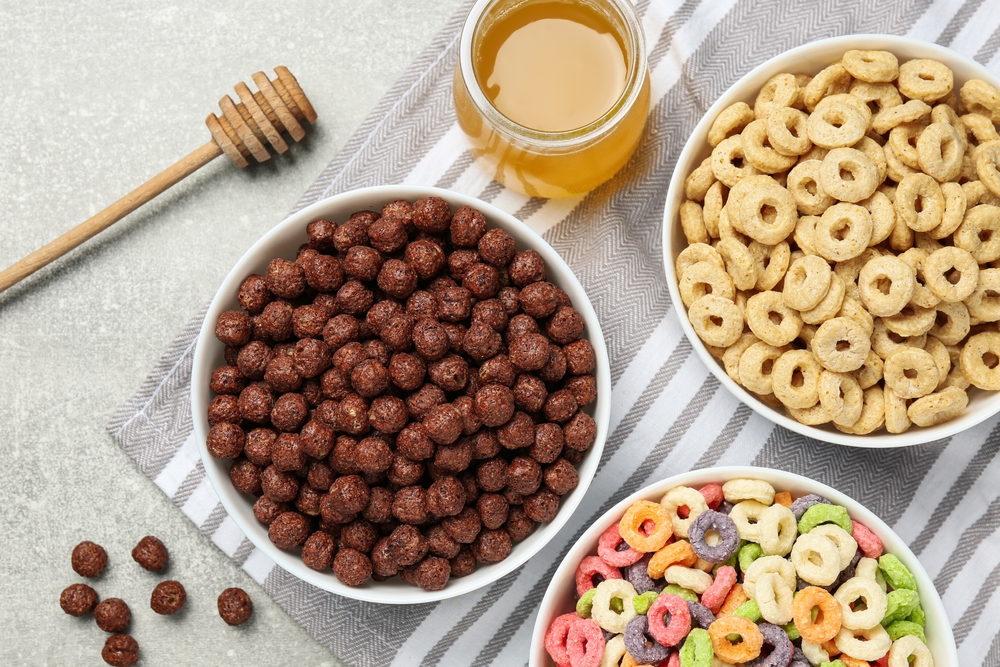
Breakfast cereals are often touted as a quick, easy, and healthy start to your day, but many of them are packed with added sugars, artificial flavors, and preservatives. Even cereals that claim to be “whole grain” or “high in fiber” can be processed to the point where they’re stripped of their nutritional value. They may give you a quick sugar rush but lead to a crash later in the day, contributing to poor energy levels and overeating. Many breakfast cereals are essentially candy in disguise, despite their marketing.
Opt for whole foods like oats, quinoa, or homemade muesli instead of store-bought cereal. These alternatives provide steady, natural energy without the sugar spikes and are a far better way to start your morning. When you choose whole grains, you’re not just avoiding added sugars, but also getting a rich source of fiber, protein, and essential vitamins.
10. Diet Sodas

Diet sodas are often marketed as a healthier alternative to regular soda due to their zero calories, but the artificial sweeteners used in them may have negative effects on your health. Studies have shown that these sweeteners can disrupt metabolism, alter gut bacteria, and increase cravings for sweet, high-calorie foods. Although diet sodas may not contribute to weight gain directly, they can still affect your overall health by promoting poor eating habits and metabolic changes. The long-term impact of artificial sweeteners is still under research, but their potential negative effects are hard to ignore.
If you’re craving something bubbly, try sparkling water with a splash of lemon or lime, or make your iced tea. These options hydrate without the harmful additives found in diet sodas and are a much cleaner choice for your body. Opting for water, herbal teas, or naturally flavored drinks will also help you avoid the metabolic disruption that diet sodas can cause.
11. Instant Oatmeal
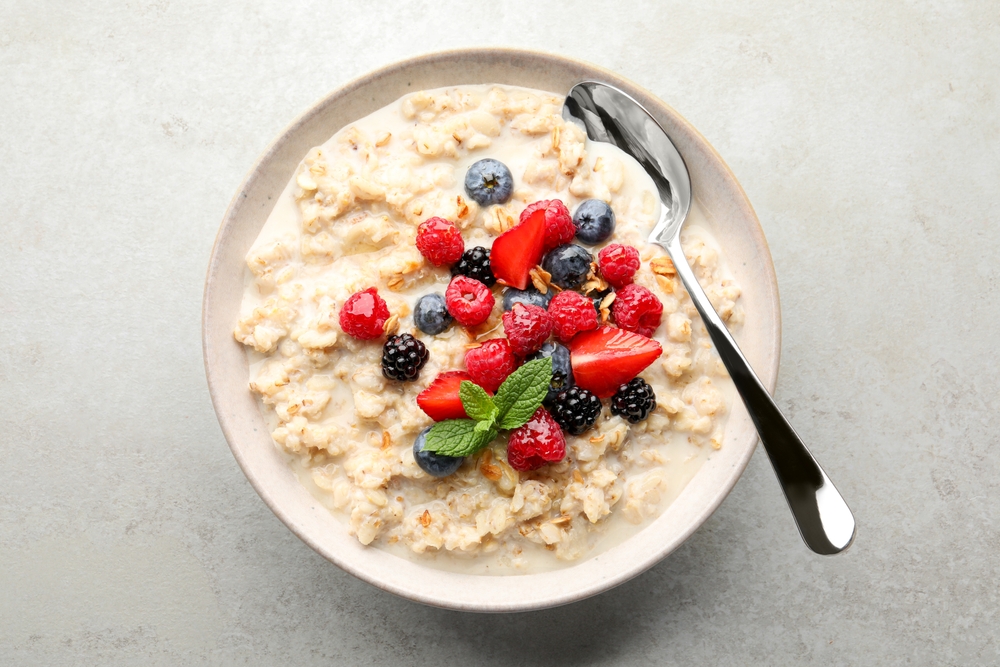
Instant oatmeal might sound like a healthy, quick breakfast, but many instant oatmeal packets are packed with added sugars, artificial flavorings, and preservatives. These packets often contain highly processed oats and have minimal nutritional value compared to whole rolled oats. Despite being marketed as a healthy option, they’re often nothing more than sugary, empty calories. Even varieties that claim to be “high fiber” are often stripped of their natural nutrients during processing.
Instead, opt for whole rolled oats and make your oatmeal at home, adding natural sweeteners like honey or fresh fruit for flavor. This gives you more control over the ingredients and ensures you’re getting the full health benefits of oats, including fiber and essential nutrients. Homemade oatmeal is not only a healthier option but also much more satisfying and filling than its instant counterpart.
12. “Healthy” Frozen Meals
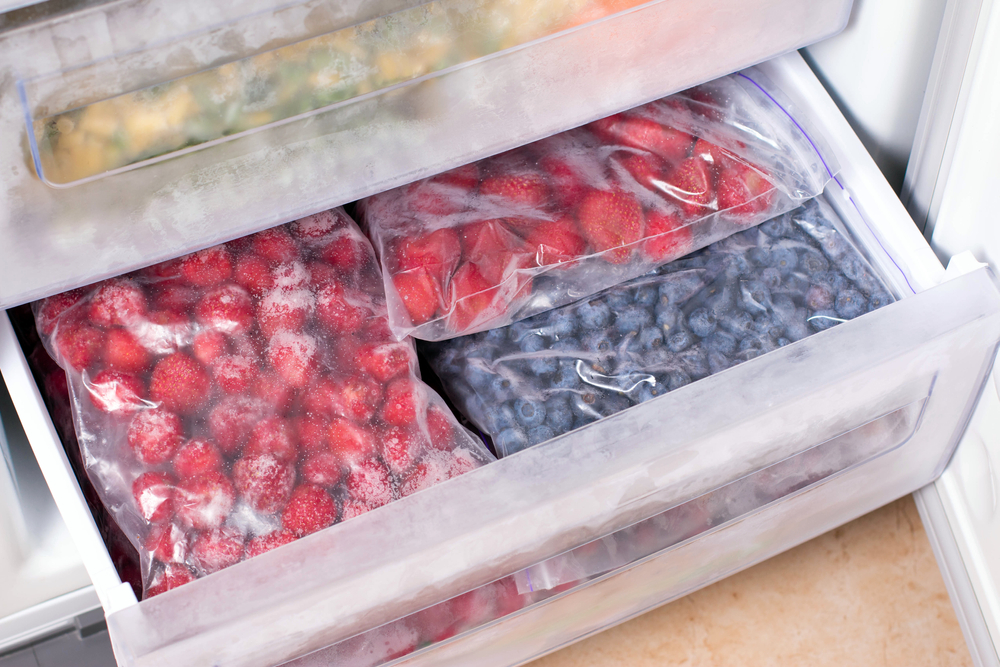
Frozen meals often seem like a quick and healthy choice for a busy lifestyle, but many “healthy” frozen options are packed with preservatives, sodium, and unhealthy fats. Even meals labeled as “low-calorie” or “organic” can be high in artificial additives that make them taste better but are not beneficial to your health. Frozen meals are often processed to last longer on store shelves, which compromises their nutritional value. The convenience of these meals comes at the cost of the quality and balance of the ingredients.
Instead of relying on pre-packaged frozen meals, try meal prepping with fresh ingredients or consider freezing your homemade meals. This allows you to control the ingredients and make healthier choices that don’t sacrifice nutrition for convenience. Freezing your meals helps you avoid the excess sodium, preservatives, and artificial flavors found in many commercial frozen foods.

Abisola is a communication specialist with a background in language studies and project management. She believes in the power of words to effectively connect with her audience and address their needs. With her strong foundation in both language and project management, she crafts messages that are not only clear and engaging but also aligned with strategic goals. Whether through content creation, storytelling, or communication planning, Abisola uses her expertise to ensure that her messages resonate and deliver lasting value to her audience.


